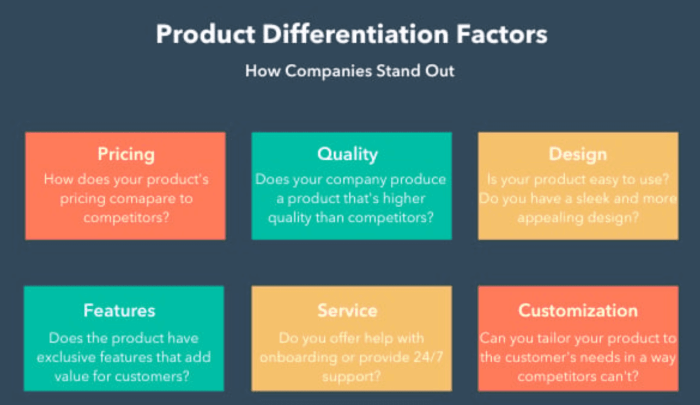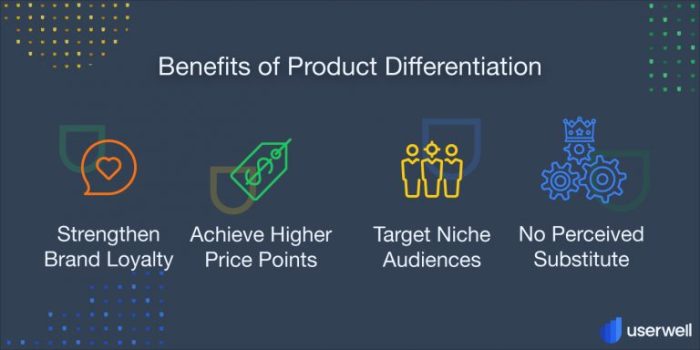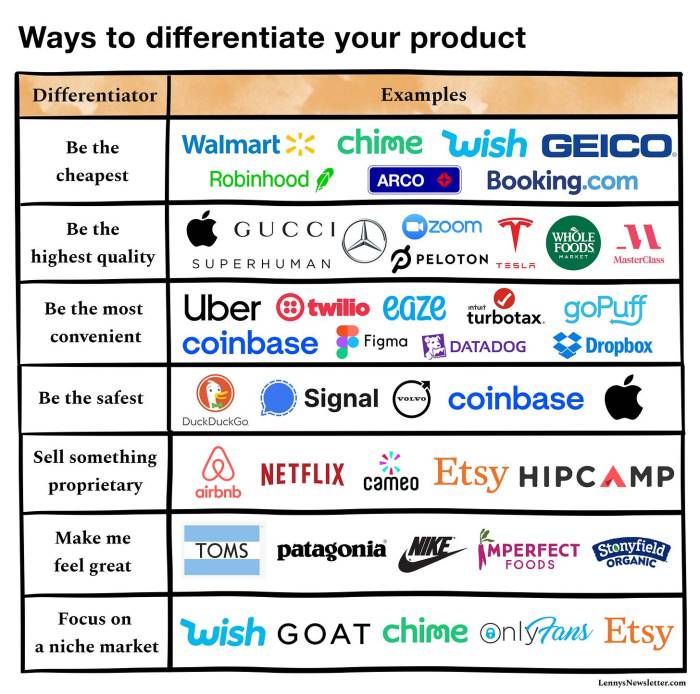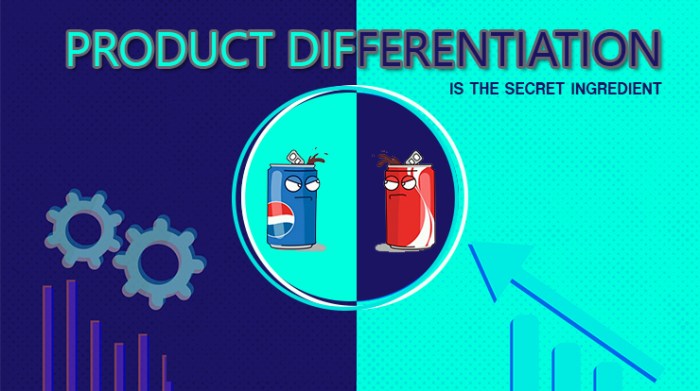In today’s competitive business landscape, a differentiator will always benefit when products have become commoditized. As markets become saturated and products become increasingly similar, it is essential for businesses to find ways to stand out from the crowd and create a unique value proposition for their customers.
This introductory paragraph captures the essence of the topic and sets the stage for the discussion that follows.
The second paragraph provides descriptive and clear information about the topic, elaborating on the key points and providing examples to support the claims made in the first paragraph.
Market Dynamics: A Differentiator Will Always Benefit When Products Have Become Commoditized

Commoditization occurs when products in a market become standardized and indistinguishable from one another. This can happen due to technological advancements, increased competition, or a shift in consumer preferences. When products become commoditized, their price and features become the primary factors influencing purchasing decisions, making it difficult for businesses to differentiate their offerings.
Commoditization can have a significant impact on product differentiation. As products become more similar, businesses find it challenging to create unique selling propositions (USPs) that set them apart from their competitors. This can lead to a decline in brand loyalty and reduced profit margins.
Competitive Advantage
Differentiation can create a competitive advantage by allowing businesses to charge premium prices, increase market share, and build strong customer relationships. Unique selling propositions (USPs) are essential for differentiation, as they highlight the unique features or benefits that distinguish a product or service from its competitors.
- Example: Apple’s iPhone is differentiated by its user-friendly interface, design, and ecosystem of apps and services.
- Example: Starbucks differentiates itself through its premium coffee, comfortable atmosphere, and loyalty program.
Value Creation, A differentiator will always benefit when products have become commoditized
Differentiation can enhance customer value by providing unique features, benefits, or experiences that meet specific customer needs. This can lead to increased customer satisfaction, loyalty, and repeat purchases.
- Case study: Netflix differentiated itself by offering a wide selection of movies and TV shows on-demand, creating value for customers who wanted a convenient and affordable entertainment option.
- Case study: Tesla differentiated itself by producing electric vehicles with long ranges, high performance, and advanced technology, creating value for customers who wanted environmentally friendly and innovative transportation.
Innovation and Technology
Innovation and technology can drive differentiation by enabling businesses to create new products, features, or services that meet evolving customer needs. Technological advancements can also improve product quality, efficiency, or cost-effectiveness.
- Example: Amazon’s Echo smart speaker differentiated itself through its voice-controlled interface and access to a wide range of skills and services.
- Example: Tesla’s Autopilot self-driving technology differentiated its electric vehicles by providing advanced safety and convenience features.
Marketing and Communication
Marketing and communication strategies can support differentiation by effectively communicating the unique features and benefits of a product or service to target customers. A consistent brand message that emphasizes differentiation is crucial for building brand awareness and creating a strong brand identity.
- Example: Nike’s “Just Do It” campaign differentiated the brand by promoting its products as a symbol of athleticism and personal achievement.
- Example: Apple’s “Think Different” campaign differentiated the brand by positioning its products as tools for creativity and innovation.
Customer Segmentation
Customer segmentation can help businesses identify differentiation opportunities by dividing their target market into distinct groups based on demographics, psychographics, or behavioral characteristics. Understanding the specific needs and preferences of each customer segment allows businesses to tailor their products and services accordingly.
Market research is essential for understanding customer needs and preferences. This research can include surveys, interviews, focus groups, and data analysis.
Pricing Strategies
Pricing strategies can be used to communicate differentiation. Premium pricing can signal the high value and exclusivity of a product or service, while value pricing can appeal to budget-conscious consumers. Different pricing models, such as subscription-based pricing or tiered pricing, can also support a differentiation strategy.
- Example: Apple’s iPhone is priced at a premium to reflect its high quality, design, and brand reputation.
- Example: Netflix offers a subscription-based pricing model that provides customers with unlimited access to its content library.
Sustainability and Differentiation
Sustainability is becoming an increasingly important differentiator as consumers become more environmentally conscious. Businesses that integrate sustainability into their products, services, and operations can appeal to eco-conscious consumers and build a positive brand image.
- Example: Patagonia differentiates itself by using recycled materials in its clothing and supporting environmental causes.
- Example: Unilever’s “Sustainable Living Plan” aims to reduce the company’s environmental impact and promote social responsibility.
FAQ Insights
What is a differentiator?
A differentiator is a unique characteristic or feature that distinguishes a product or service from its competitors.
Why is differentiation important?
Differentiation is important because it allows businesses to stand out from the crowd and create a unique value proposition for their customers.
How can businesses create a differentiator?
Businesses can create a differentiator by identifying and leveraging unique selling propositions, such as product features, customer service, or brand image.


